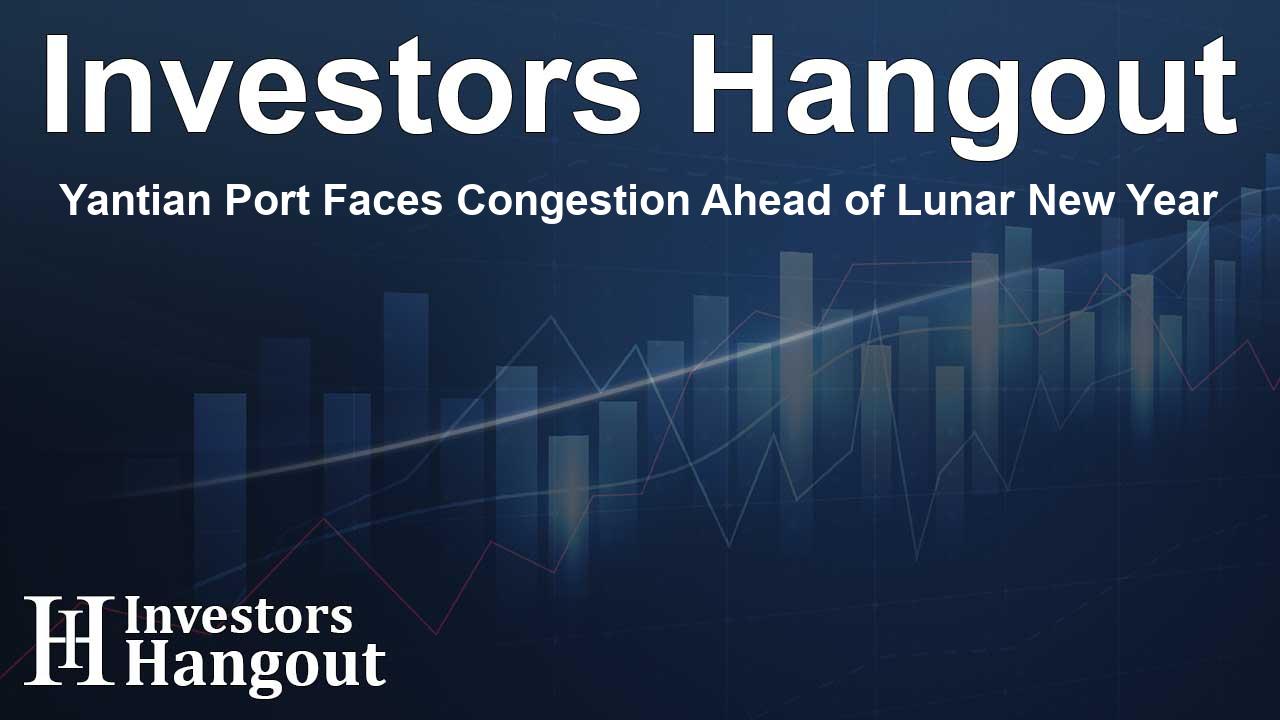Yantian Port Faces Congestion Ahead of Lunar New Year

Yantian Port's Current Congestion Challenge
Recently, exporters have been scrambling to load and ship their cargo from Yantian Port, one of the globe's busiest container ports. The urgency is driven by the upcoming eight-day Lunar New Year holiday, alongside a looming potential wave of tariffs on goods destined for the United States.
The Impact on Cargo Shipment
Yantian Port is a significant hub, accounting for a substantial portion of Guangdong's international trade and China's exports to the U.S. To cope with the increasing demand, the port has raised its daily container quota by 15%, allowing up to 15,000 units to be processed from January 20 to January 28.
Delays and Driver Experiences
For truck driver Li Guoliang, the experience has been challenging; what usually takes him a mere thirty minutes has expanded to over two hours just to get unloaded at the port. Li attributes the delays to many factories rushing their shipments ahead of the holiday while facing constraints at the port and container yards.
Drivers Reporting Long Wait Times
Reports have surfaced of some truck drivers enduring waits over 24 hours in the congested port area, exacerbating the challenges faced by exporters. The volatile situation reflects a mix of factors, including increased shipping demands and limited resources at the port.
U.S. Tariff Threats and Market Reactions
The situation escalated when statements from U.S. President Donald Trump indicated discussions around imposing a 10% punitive duty on Chinese imports. With a potential deadline to announce these tariffs, U.S. consumer demand for Chinese goods could diminish significantly.
Chinese Government's Response
In response to the tariff threats, China's commerce ministry has expressed a willingness to cooperate with the United States, aiming to maintain stable economic and trade relations. This comes amid a backdrop of businesses taking proactive measures, with U.S. companies bolstering their inventory of various products to mitigate the impact of any impending tariffs.
Shipping Sector's Challenges
The escalating congestion at Yantian has inevitably translated to higher trucking costs, hitting exporters where it hurts. Fees for transporting goods from Fuyong logistics hub to Yantian Port have skyrocketed from about 1,000 yuan ($138) to over 2,500 yuan ($345). Additionally, exporters might encounter extra fees for container drop-offs due to congestion.
Future Outlook for Yantian Port
The increasing congestion at Yantian Port raises concerns for the future, especially coinciding with tariff discussions. Li Guoliang pointed out a critical question—if there were no link between the congestion and the tariffs, why would factories hesitate to ship goods immediately after the Lunar New Year holiday?
Potential Long-Term Effects
As businesses navigate these turbulent conditions, the ongoing predicament at Yantian Port signifies the broader implications for global trade dynamics as the situation unfolds. Exporters will need to remain adaptable amidst these changes, preparing for the possible outcomes stemming from tariff announcements and the continuing effects of port congestion.
Frequently Asked Questions
What is causing the congestion at Yantian Port?
The main reason for the congestion is the rush by factories to ship goods before the Lunar New Year holiday, coupled with limited container quotas and yard space.
How has the situation at Yantian Port affected shipping costs?
Due to the congestion, trucking fees have substantially increased, impacting the profit margins for exporters.
What is the potential impact of U.S. tariffs on Chinese goods?
If implemented, the tariffs could lead to a significant decrease in U.S. demand for imported Chinese products.
How are Chinese exporters responding to the tariff threats?
Many exporters, along with U.S. companies, have started to frontload their shipments, building inventories to alleviate potential disruptions.
Is the Chinese government taking measures in response to U.S. tariffs?
Yes, the Chinese government has shown willingness to work together to foster stable trade relations despite tariff threats.
About The Author
Contact Lucas Young privately here. Or send an email with ATTN: Lucas Young as the subject to contact@investorshangout.com.
About Investors Hangout
Investors Hangout is a leading online stock forum for financial discussion and learning, offering a wide range of free tools and resources. It draws in traders of all levels, who exchange market knowledge, investigate trading tactics, and keep an eye on industry developments in real time. Featuring financial articles, stock message boards, quotes, charts, company profiles, and live news updates. Through cooperative learning and a wealth of informational resources, it helps users from novices creating their first portfolios to experts honing their techniques. Join Investors Hangout today: https://investorshangout.com/
The content of this article is based on factual, publicly available information and does not represent legal, financial, or investment advice. Investors Hangout does not offer financial advice, and the author is not a licensed financial advisor. Consult a qualified advisor before making any financial or investment decisions based on this article. This article should not be considered advice to purchase, sell, or hold any securities or other investments. If any of the material provided here is inaccurate, please contact us for corrections.
